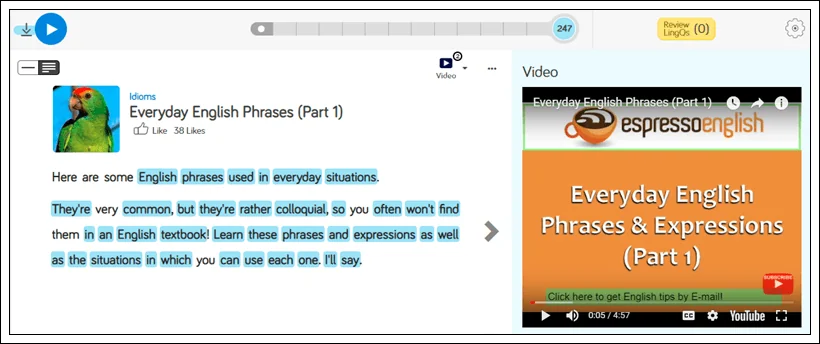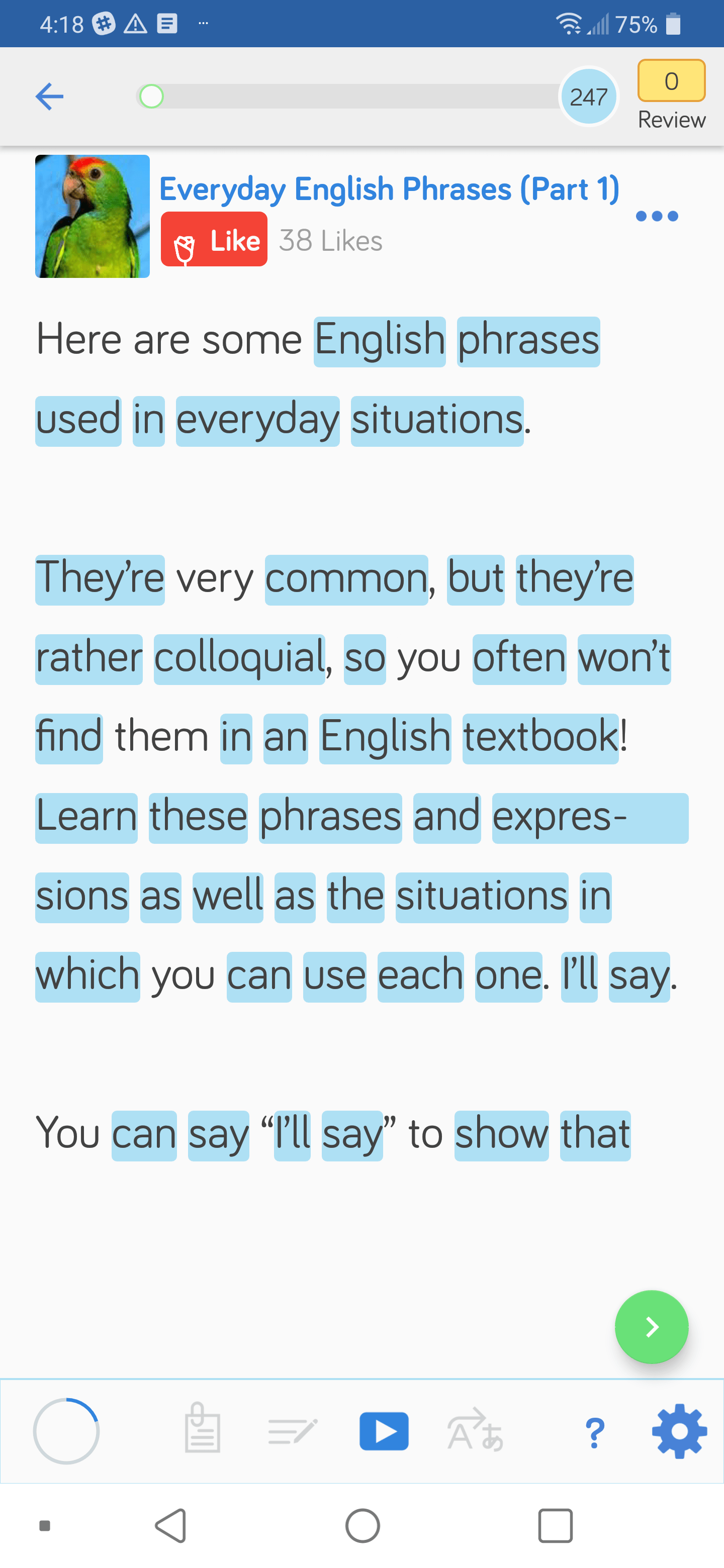Make Strides in Your English Fluency with American Idioms
If there’s anything out there that can help you level up when it comes to your English expertise, it’s idioms, particularly American idioms. Being more widely spoken in the world when compared to British English, American English offer any language learner the perfect chance to make significant strides in their English fluency.
Before going any further, let’s quickly run through the basics of idioms in language. By definition, idioms in language are expressions or groups of words which have a meaning that isn’t obvious, i.e. you cannot just guess what an idiom means just by looking at the words it consists of.
On the bright side, English idioms are the ultimate package – easy to learn, but far more valuable than meets the eye. Now, there are many reasons why American idioms, in particular, help English learners advance on their language learning journey. In this article, we’ll take a look at a few of the most important ones. Without further ado, let’s get right into it!
What exactly are American idioms?
Vocabulary Size
Of course, knowing more words and having a wider vocabulary range is always a plus for any language learner. However, learning the words that can actually make you sound like a native speaker should be an English learner’s go-to exercise. Idioms are those type of words. Now only do you know more, but you know the stuff that makes your English better.
I always advise my students to learn as many idioms as possible in their lifetime, as I know from personal experience how (positively but surprisingly) native speakers react when they hear a non-native speaker use idioms freely in everyday conversations. It screams “fluency” all around and enables you to demonstrate command of your language. I’ll get back to this point a bit later in this article, so I advise you to read further.

Contextual Prowess
Traditionally, idioms in language have been widely used only in a particular region or culture. However, most American idioms nowadays have found their way into everyday usage. One thing to note here is while most regular English words, such as “good”, “delicious”, “beautiful”, etc. can be used in multiple contexts, they cannot be used at all times – the context matters.
On the other end, idioms are almost universal and they can fit in almost any given context when they’re called upon. Imagine saying that a donut is “to die for”. This would mean that it’s “extremely delicious”. However, you cannot use “extremely delicious” for a man or woman, or inanimate objects but what you can say is that a man or woman might be “to die for”, meaning they are the “person of your dreams”.
You see my point. Knowing idioms is like having the keys to any context possible. I do, however, want you to note the following: the only thing you really have to keep an eye on when it comes to American idioms is the level of formality when compared to the context they’re used in, as some idioms are less formal than others.

Unexpectedness
Yes, I just totally made this word up but it’s true… no one’s expecting you to command the English language and know all its ins and outs as a non-native speaker. As someone who speaks at a native-like level, you’re only expected to speak flawlessly, without stuttering or painful errors in speech.
This means that when you throw in a word or expression that only those from a particular culture or region would normally understand, you’re speaking “more than great” English! You’re doing things that are generally only expected from the natives, so kudos to you for doing an unexpectedly good job! This is the point I wanted to bring across earlier in this article.
Now that we’ve gotten that out of the way, here’s a list of some of the most popular American idioms (with examples) that can help you get a few steps further en route to native-like fluency.

My favorite American idioms
To kick the bucket
Meaning: to die
Hey, have you heard? Mr. Clarence has finally kicked the bucket!
My dog kicked the bucket last month after being in the family for 12 years.
With flying colors
Meaning: use to describe something that has been done successfully and without any mistakes
Sarah’s passed her test with flying colors.
The doctor said I passed my examination with flying colors, but we’ll see.
Once in a blue moon
Meaning: extremely rarely; almost never
Mr. Barnaby gives out A’s only once in a blue moon.
OMG, this only happens once in a blue moon! It’s awesome
To pull a rabbit out of the hat
Meaning: to do something unexpected that causes you to win, succeed or get out of a jam
We all thought the Warriors would lose, but Coach Kerr pulled a rabbit out of the hat when he brought in McCaw in the last quarter.
I’m not worried about Kevin. He always pulls a rabbit out of the hat.
To twist someone’s arm
Meaning: to convince someone to do something they didn’t want to
Okay, you’ve twisted my arm. I’m coming with you!
Jack never goes out but his wife twisted his arm tonight.
To hit the books
Meaning: to study hard and with great focus
Shellie finally decided to hit the books, even though the school year is almost over.
If you want to make it big one day, you’ve got to hit the books every day!
To lose one’s touch
Meaning: to lose an ability or skill you once had
Phil was always a ladies’ man, but he lost his touch!
You sound crazy! Have you lost touch with reality?!
To find one’s feet
Meaning: to be in the process of adjusting to a new situation
Jasmin is still finding his feet in London, as I heard he was looking for a new apartment again.
The new school year has been tough on Jamie. The poor guy’s still finding his feet.

The whole nine yards
Meaning: used to describe the entire amount, distance and basically every single thing connected to something
If she tries to divorce me, I’m taking it all – the car, the house, the whole nine yards!
It looks like LeBron James is doing it all tonight – threes, dunks, layups, the whole nine yards!
To hit the nail on the head
Meaning: to do the right thing in exactly the right way
This song is banging! Sia has hit the nail on the head with this one!
If you really want to hit the nail on the head with your concert, you should let even more people know about it.
Check out LingQ for American idioms and much more
Idioms are your shortcut to demonstrating native-like English fluency even if you’re “still not there”. They not only show others that you have a few cool English words in your word-stock but that you can use them skillfully just like a native speaker would.
After all, isn’t that the whole point of learning a language?
If you’d like to learn even more English idioms to super-charge your fluency, check out the English lessons on LingQ. Using LingQ, you can import any idiom phrase you see on the web and easily create a lesson of your own. You can also try searching on LingQ to see which English learning content interests you. There is over 1000 hours of content and I’m sure you’ll find something great to help you study your English.

Also, LingQ is available on mobile. Take your lessons wherever you go and listen to your target language, read your transcripts, and create review flashcards. LingQ’s language learning apps are available for both Android and iOS.

Want to learn more? Check out our idioms course on LingQ!
We’re often asked: is English hard to learn? Well, not if you enjoy the learning process! That’s why there’s LingQ, which allows you to learn English from content you love! This means you can catch up on your favourite English Netflix series or podcasts while furthering your language skills. Check out LingQ today to get started!
***
Jasmin Alić is an award-winning EFL/ESL teacher and writing aficionado from Bosnia and Herzegovina with years of experience in multicultural learning environments.

